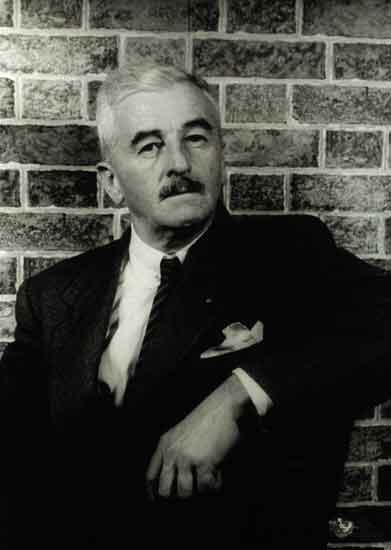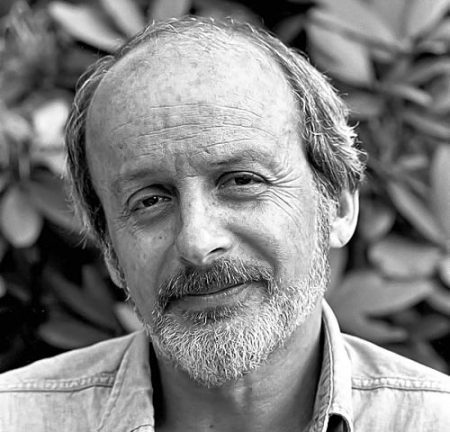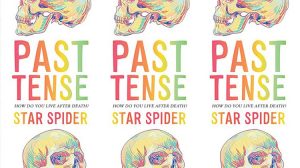This is the first of a series of short essays. These reviews will interpret writers interpreting each other. This first one specifically addresses what I think E.L Doctorow does with Hemingway and Faulkner in his reading of Faulkner’s tremendously interpretable novel, As I Lay Dying. All writing here is my own except where otherwise quoted. I will step in parenthesis to make my writer’s commentary on Doctorow’s writing. My subsequent chapters will deal with a range of international writers in a range of genres.
I. E.L. Doctorow, on As I Lay Dying. In The New York Review of Books, May 24, 2012: 20-21
E.L. Doctorow’s brilliant assessment of As I Lay Dying engages Faulkner both as writer and also the writing of fiction. Overall, he concludes affirming Faulkner’s intimacy with the human psyche “to the depths of its raw existence” undefined “by the familiar constraints of social realism.” (It’s strange how much Doctorow seems to put social approaches below those of the “human psyche.”) In other words, Doctorow finishes a piece that might initially seem to be a rather routine comparison of Faulkner and Hemingway in terms of courage, only to turn to the explosive conclusion that Faulkner in his “messier,” “less finished” life was finally freer than Hemingway to jump out of the boxes of literary convention. (Here Doctorow lays his cards on the table taking Faulkner’s side, it appears early on.)

Throughout his substantial reading of the characters, including what he astutely calls their “cunningly passive father,” Doctorow alludes to something quite other than a mere comparison of courage, to what he calls a “sense of composition,” of “a book that is in medias res,” of a singularly unique perspective—which “does not look up to its characters or down, but maintains them at eye level.” Doctorow is careful to separate Faulkner in biographical terms from what becomes Faulkner’s book. He finds that unlike Caldwell or Steinbeck’s fiction, this book does not become mired in the “familiar constraints of social realism,” such as ‘social inequity’ or vernacular dialect. Doctorow holds firm to the conviction that in this novel, through its very uniqueness “it is as if the universe pressing down on them is created by themselves,” the characters’ lives as a result rendered bare, ‘unmediated by culture, schooling, or money.” (This is Doctorow again taking sides with a narrative focus independent of ‘culture, schooling, or money.”

Doctorow blends a survey of story elements with meta-fictional observations regarding “knowing and not knowing at the same time,” adding that writers now “no longer needed to explain anything.” (Doctorow confidently and rather unexpectedly moves here into meta-fictional territory and from this point he begins to denigrate Hemingway further.) Doctorow concludes that Hemingway’s lack of courage as a writer lay in his commitment to “the romance of the self.” (This is a fascinating aside since readings of American literature have been saturated with concept of selfhood). Never is this courage issue really directly addressed in writing about this novel, except as a way to reveal what Doctorow believes Faulkner achieved in his magnificent “tour de force.” Often, we have to read his review carefully, as we would a novel, a film or a conversation. (Actually, Doctorow thinks here a bit like wordsmith Darl in As I Lay Dying, making new, sudden and unexpected connections). Then Doctorow brings in Faulkner talking about Hemingway’s language and writing. Faulkner’s fast comment about Hemingway’s not choosing “a word where the reader might check his usage by a dictionary” is deep and could be misleading. For one thing, it reveals what amounts to Faulkner’s thoughtfully snide awareness that Hemingway would not take the chance to get “a word” wrong. (This is fascinating reading about the self, courage and narrative methodology.) When, then, Doctorow revisits this issue later, he soon states that this whole matter is of course far more subtle than diction or perfunctory fictional conventions. Courage, ultimately, asks far more than diction does, (Doctorow concludes) and intimacy with human psyche in an “elemental” way is far more than anything formulaic. In this piece, Doctorow refreshingly celebrates a completeness—writing that the book’s “two modes of discourse—its literary thinking and its common speech—are complementary.” (It is rather emancipating to read Doctorow thinking of the “big things.”)
Overall, it feels as though in his reading of this novel, Doctorow has responded to what he felt was an open and ragged courage able to “hold together in one place the multifarious energies of real, unstoried life,” in what becomes in the novel a glorious “fracturing of the experience that has the uncanny effect of affirming its reality.” (Finally, Doctorow identifies with and compliments Faulkner it seems for reaching further.) Perhaps, writer Doctorow here is reintroducing what used to be called “universal” in his unqualified praise of Faulkner’s novel tapping “the human psyche to the depths of its raw existence” with “the authority of someone who had.”





Linda Chown says
Thank you for what you said. Yes too many people read Faulkner as sociology first and foremost. I am always happy to stand up for more.
Jas says
Thank you for this lovely piece. AILD is one of my favorite works of literature and this reflection reminded why I love Faulkner even more. All writing takes tremendous courage and I wish more people understood this about Faulkner’s use of language.